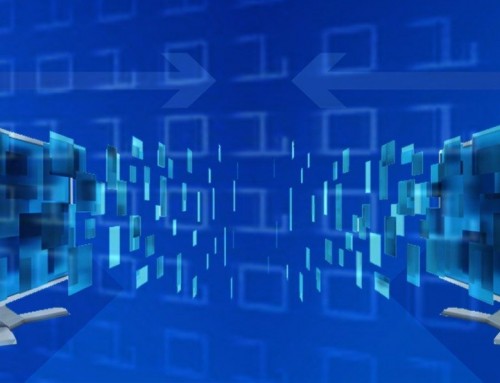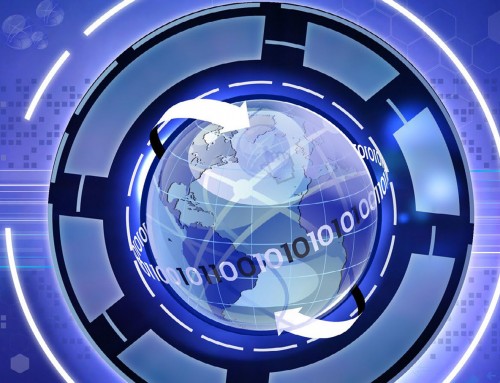Posted on behalf of Kendra Sheehan, Regional Sales Manager
What challenges are CIO’s within a hospital tasked with, what keeps them up at night and how has the role changed?
These are a few of the questions presented to Vince Vitali, Chief Information Officer at RML Specialty Hospital. RML Specialty Hospital was founded in 1987 and is a recognized leader in best practices for wound care and medically complex patient rehabilitation. RML Specialty hospital is a nonprofit specialty hospital with locations in Chicago and Hinsdale servicing patients with catastrophic or acute illnesses complicated by multiple medical issues.
Here is what Vince shared with us:
How has the CIO role changed over the time you’ve been in the healthcare industry?
I’ve been in healthcare for almost 30 years, so a great deal has changed. The CIO role has progressively expanded from more technical and financially-driven projects to clinical and business-critical projects. CIOs today must be well-versed in the business of healthcare and in the critical success factors. That has been amplified by the evolution of healthcare into more specialty areas: inpatient, ambulatory, clinic/office, post-acute care, palliative and hospice. It also now includes community services such as transportation, housing and meals. The saying “It takes a village” was never more true in healthcare, and CIOs need to be able to provide technology to address and advance business goals within and across these areas.
Have you noticed a significant amount of change in healthcare/quality of care related to advances in technology?
Most definitely. The evolution of the internet and web technologies has given rise to thousands of smaller, specialized healthcare application vendors. Technology is being pushed closer to the end-user (patient). Robotics, wearable and at-home technology have expanded the care setting to virtually anywhere it’s needed. Advances in medical and device technology is also allowing for much more effective hospital-based care. More accurate diagnostics have greatly improved quality. This trend will continue.
Could you talk a little bit about the role of the government in healthcare and the effect in has on your job?
As the largest payer in the US, the government has a huge impact on healthcare and thus the role of the CIO. Look at the CMS innovation projects such as joint replacement and the move from fee-for-service to outcomes and value-based payment. The current administration is postponing these and other similar programs but there’s no doubt the focus on outcomes is necessary to drive the overall cost of healthcare down in the future. The current model is unsustainable. As government and then private insurance roll these programs out, greater demands will be placed on data. That’s where the CIOs come in.
Is a facility’s size a big factor in the role of the healthcare CIO, in the same way it is among small and medium businesses compared to larger corporations?
Yes and no. Certainly, large academic medical centers and integrated delivery networks have more and more specialized care settings that require broader and specialized technology especially if doing research. For example our inpatient only LTACH has no ED, no Surgery and no outpatient care but we have very deep use of respiratory and physical therapy and highly specialized pulmonary and wound care. So smaller is not always less involved. Also, in areas like cybersecurity, it doesn’t matter what size, the risks and threats are virtually the same and we as a ‘small’ organization need to adopt a layered approach to protecting our networks, applications and data – and usually on a much smaller budget.
When you talk to other CIOs inside or outside the healthcare industry, what kinds of things do you find you have in common?
Cybersecurity is on every CIO’s mind I talk to in healthcare or in other industries. I participate in local CIO groups that are not healthcare specific for this reason. Platform technology and network infrastructure are also common issues. More and more healthcare organizations are doing app development, so that’s another area where we can share information.
What are your top three priorities when you get to work in the morning?
Making the work fun for my team is always top-of-mind. This is tough work and many of the skilled folks I have could make more money in other industries, so I put a lot of emphasis on engaging my staff. Maximizing our current technology and applications is second. Technology is expensive and often times we as CIOs are pushed to new projects before we’ve had a chance to optimize what we just implemented. Lastly, focusing on the business users and their needs. That means working with leadership to understand the priorities and applying technology and/or knowledge to improve outcomes for each of our business leaders.
What risks and issues keep you up at night and/or constitute the biggest challenges?
Most definitely it’s cybersecurity. I read the blogs and get numerous advisories every day that highlight breaches in healthcare and other industries and incredible lengths cyber criminals are going to disrupt our businesses and our lives. It makes one a bit paranoid. You have to assume there will be an incident and do the best you can to prepare the organization to respond and recover. It is really hard to understand where the biggest bang-for-the-buck is re: technology investments to combat this. I think I get a dozen or so solicitations daily from vendors that have some part of the solution.
What do you think are the top skills/qualities a CIO must possess today?
Healthcare business knowledge is must. You also must be a great communicator and organizer. You need to have enough technical knowledge to work with your team and set direction. You need to have enough clinical understanding to ask the right questions. You must be focused on developing your internal resources. You need to be able to educate without alienating the other leaders in the organization.
What do you expect out of your EHR/technology? In a perfect world, what would your HIT system(s) look like?
EHRs have evolved over the last several years from more transactional systems to knowledge based systems. This needs to continue and expand to include expert-based guidance, personalized medicine, and genomics. The body of healthcare and medical knowledge is growing beyond the capacity of the human brain. EHRs will have to digest and synthesize data and use evidence and AI to assist caregivers.
How do you measure success?
My success is tied to the organization’s success. IT is a large investment and if the organization doesn’t do well, I won’t have the budget to provide the support necessary. That being said, I don’t make the final corporate strategic decisions. So my success is to use what I have to the best of its capabilities to support the organization. I also pay strict attention to keeping my staff engaged and positive, no matter what challenges we face.




